Welcome to the Linux Distros page where we catalog the latest versions of your favorite Linux distributions, highlight their latest features, direct you to the download page, and include installation guides where necessary or as requested.
The Linux Distros page is a Live page because we will continually update its content as the below-listed distros release major versions. In other words, simply stay tuned!
I have used neofetch – a command-line utility to display operating system, software, and hardware information in the screenshots of each Linux distribution.
Last Updated On: 3rd June 2021
RHEL 8
RHEL stands for Red Hat Enterprise Linux and it is the world’s leading enterprise Linux platform from which businesses can scale existing applications as well as roll out developing technologies for any type of environment especially the cloud.
Its latest version is RHEL 8.4 and it ships with a ton of changes including cockpit web console performance and feature updates, System Purpose, and a unified ISO support by Anaconda, LUKS2 disk encryption format support, 5-level paging, and tables support, RPM updates, BIND updates, etc.
RHEL is not free but you can try it for free, but, or talk to a Red Hatter using the links provided on the official website.
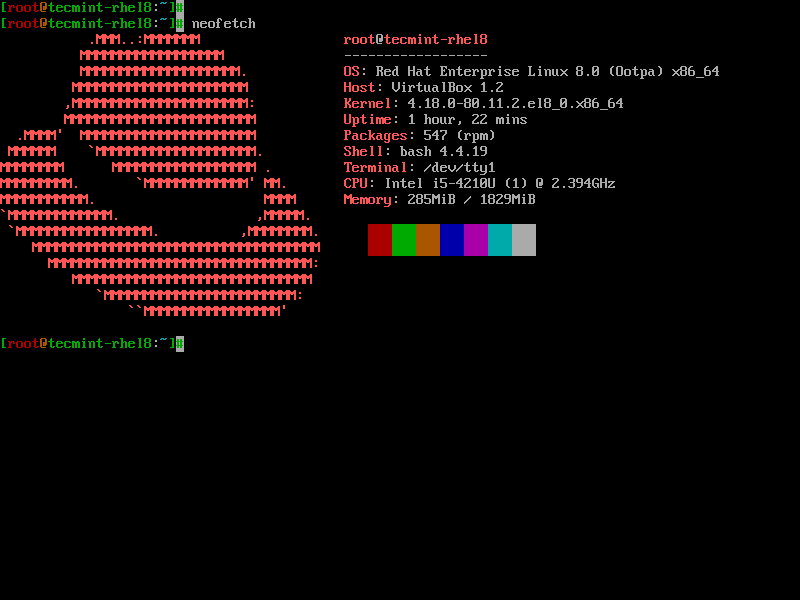
For RHEL 8 installation instructions, read our guides:
CentOS 8
CentOS is a community-driven project focused on delivering a free and robust open-source Operating Systems in 2 versions, CentOS Linux – a consistent and manageable platform that suits a variety of deployments, and the new CentOS Stream – a rolling-release distro that derives virtually all of its features from RHEL and Fedora Linux.
The latest versions of CentOS are available as CentOS 8 and CentOS 8-Stream and some of the new features that they house include changes in several major areas including virtualization, security details, installation and image creation, infrastructure services, Cockpit web console, and networking.
Note: CentOS Linux 8, which is a rebuild of RHEL 8 is going to end in December 2021. I suggest you to go for other alternatives like AlmaLinux and Rocky Linux.
CentOS is available free of charge and you can download your preferred version of CentOS from here: Download CentOS 8 or CentOS 8 Stream.
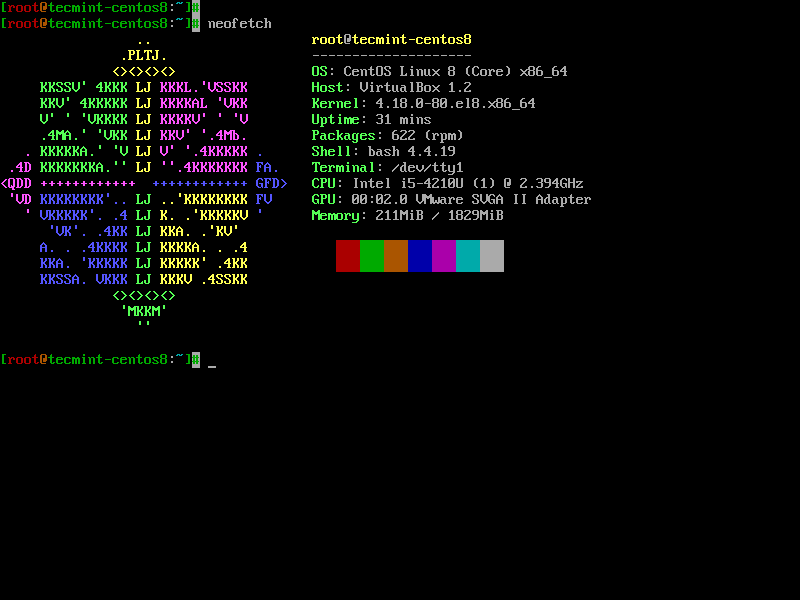
For CentOS 8 installation instructions, read our guide Installation of “CentOS 8.0″ with Screenshots.
AlmaLinux
AlmaLinux is a free and open-source operating system that is a true 1:1 binary compatible distribution and a clone of RHEL 8.0. It is designed to take over from CentOS 8 and can be used in a myriad of environments including virtual machines, bare-metal installations, desktop PCs, and even enterprise-grade servers.
The maiden stable release of AlmaLinux ( AlmaLinux 8.3 ) was made available on March 30, 2021. Currently, the latest version of AlmaLinux – and the second stable release, is AlmaLinux 8.4.
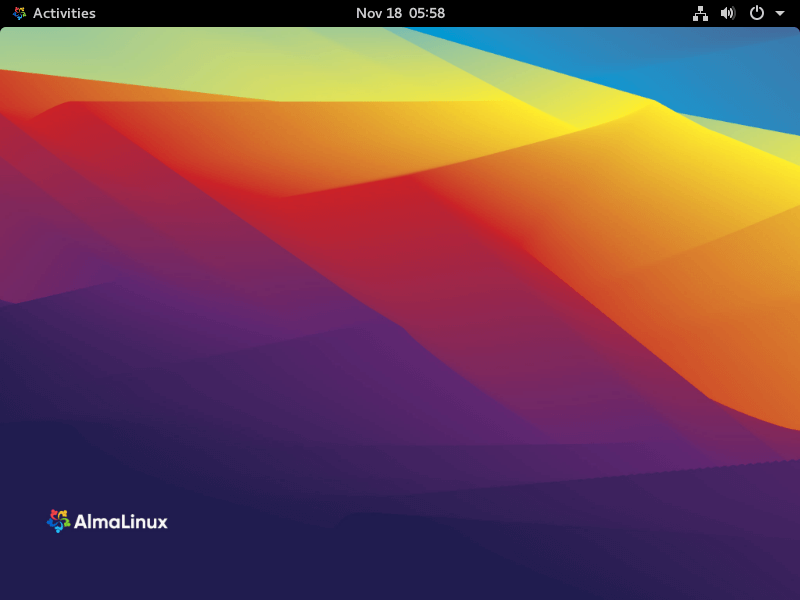
[ You might also like: How to Install AlmaLinux 8.4 Step by Step ]
Fedora
Fedora is a well-polished free and open-source Operating System built for laptops and servers to be powerful, flexible, and reliable when given any task. It is supported by several companies, especially Red Hat. It was first released on November 6th, 2003, and has since been known for making innovative moves in cloud and container development.
Its latest Fedora 34 version comes with a handful of exciting features and to mention a few they include:
- GNOME version 40
- Updated packages: Python 3, NodeJS 12, Glibc 2.30.
- Improved support for Rock64 and RockPro 64, among other SoC chips.
- Updated hardware support.
- Docker has been replaced by upstream package moby-engine.
- 32-bit support dropped.
Interested in downloading Fedora 34? Grab it from the official download link here: Download Fedora 34.
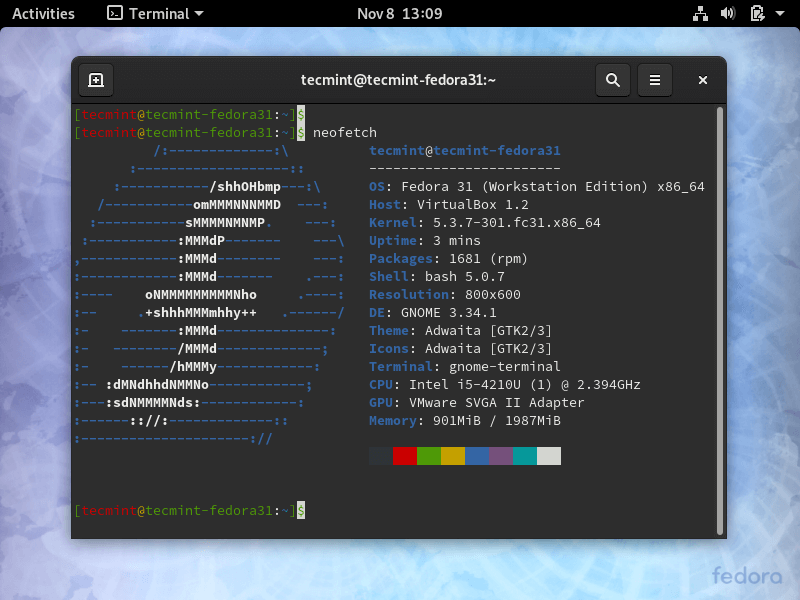
[ You might also like: How to Install Fedora 34 Server with Screenshots ]
Debian
Debian is a free and 100% open-source Operating System that comes with over 59000 packages and precompiled software bundled up into an easy-to-install format on virtually any machine. If you don’t know anything about Debian your single takeaway can be that it is the distro that Ubuntu is based on; and it has been doing wonders in the open-source community since its first release in September 1993.
The latest Debian version 10.9 was released on March 27th, 2021 after months of development. It is codenamed “Buster” and it ships with several desktop environments for users to choose from namely Cinnamon, GNOME, KDE Plasma, LXDE, LXQt, MATE, and Xfce.
This is a Long Term Support version that will be supported for the next 5 years and it includes tons of changes, bug fixes, and system improvements including:
- Wayland is the default display server.
- AppArmor enabled by default.
- Network filtering based on the nftables framework by default.
- Improved UEFI (Unified Extensible Firmware Interface) support.
- Cups and cups-filters enabled by default.
- Apache 2.4.38, Chromium 73.0, GnuPG 2.2, OpenJDK 11, etc.
Debian is available free of charge and you can download your preferred version of Debian from here: Download Debian 10.
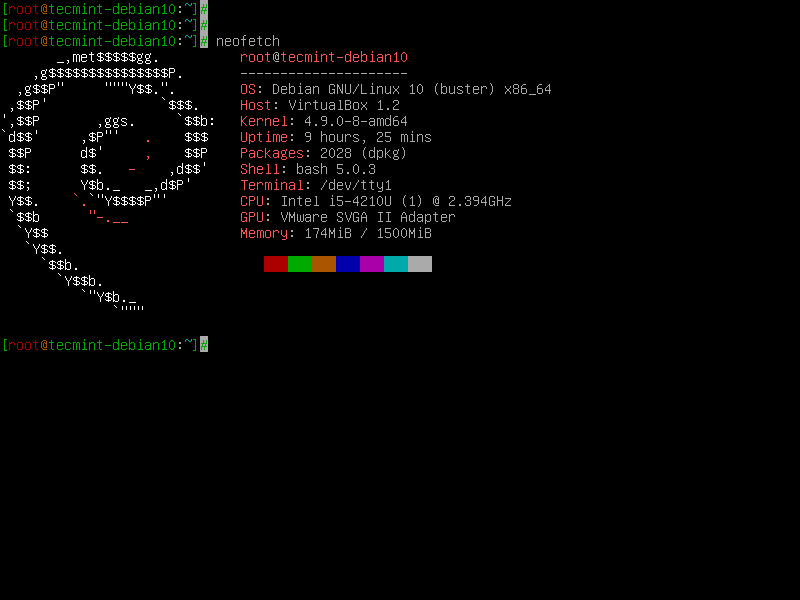
For Debian 10 installation instructions, read our guide on How to Install a Debian 10 (Buster) Minimal Server.
Ubuntu 20.04 Focal Fossa
Ubuntu is a free and open-source Debian-based Linux Operating System popular for its simple beautiful design, customization features, and ease of use. It is developed by Canonical in different versions colloquially referred to as flavors e.g. Xubuntu and Kubuntu, on a strong open-source philosophy and has since become the most popular Linux distro in the market today dominating up to 26.82% of OS market share.
The latest version of Ubuntu is 20.04 codenamed Focal Fossa and its major features include:
- Toolchain upgrades
- Linux kernel 5.4
- Security improvements
- GNOME 3.6
- ZFS on root
- Updated apps: LibreOffice 6.4, Thunderbird 68, Firefox 75
- PulseAudio 14.0
Ubuntu is available free of charge and you can download your preferred version of Ubuntu from here: Download Ubuntu 20.04.
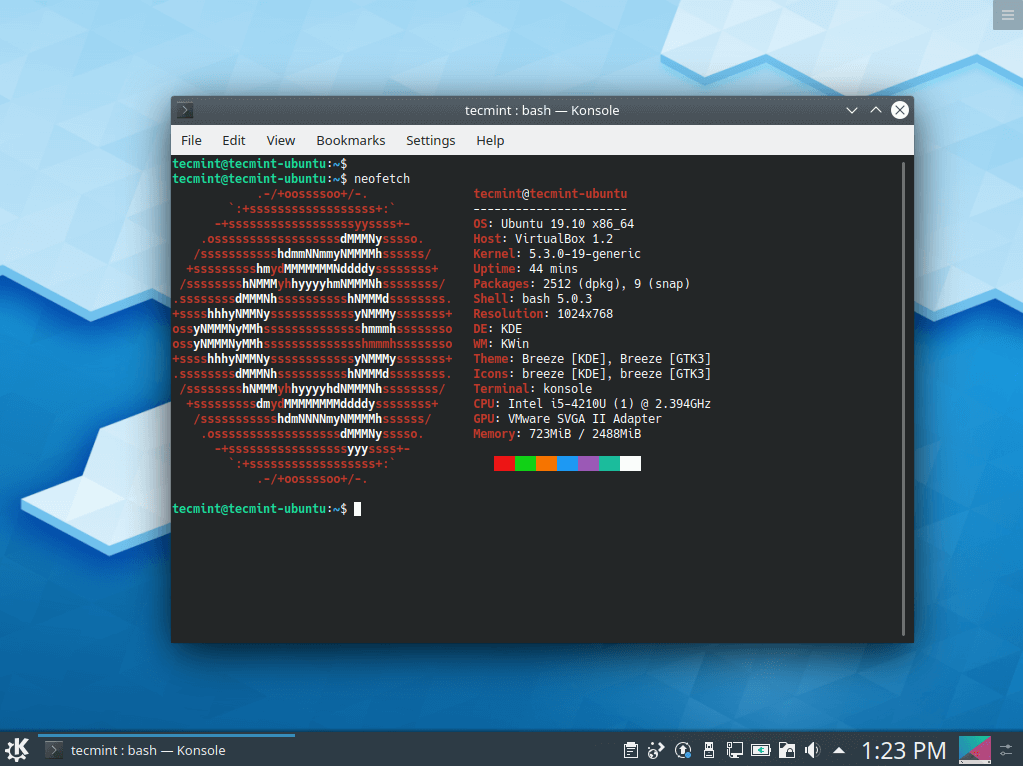
For Ubuntu 20.04 installation instructions, read our guide: How To Install Ubuntu 20.04 Desktop
Linux Mint 20 Ulyana
Linux Mint is a Debian and Ubuntu-based community-driven distro built with a focus on powerful, elegant, and easy-to-use computing. Right out of the box it ships with complete multimedia support among several free and open-source applications.
It is available in 3 main editions, MATE, Xfce, and Cinnamon, boasts of several community-driven and Debian editions, and has since become to be among the most loved Linux distros since its first release by French IT specialist, Clement Lefebvre in 2006.
Its latest version is in the form of Linux Mint 20 is codenamed Ulyana and it is filled with major fixes and new features including:
- Synaptics touchpad drivers
- A garbled screen in Virtualbox (fix)
- Virtualbox Guest additions
- Home directory encryption
- Guest sessions
- Scanner not detected (fix)
- Samba instability (fix)
- Wine 4.0
Linux Mint is available free of charge and you can download it from here: Download Linux Mint 20.
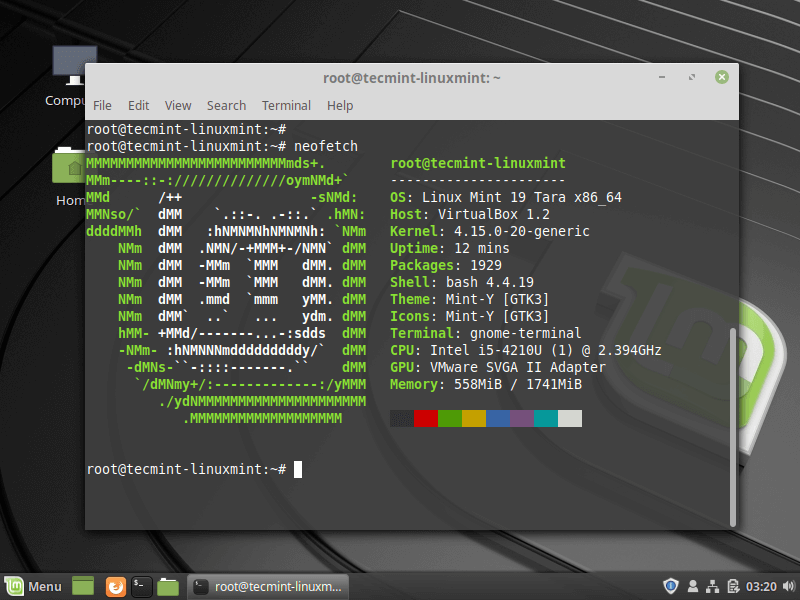
For Linux Mint installation instructions, read our guides: Install Linux Mint 20 Alongside Windows and Installation Guide of Linux Mint 20.
Manjaro Linux 21
Manjaro Linux is a free, open-source Arch-based Linux distro popular for its beauty, reliability, and above all, simplification of the very technical Arch Linux Operating System. It ships with the lightweight Xfce desktop environment which enables it to run fast on even low resource systems, but it also has KDE and Gnome editions, as well as 32-bit community-maintained editions.
The latest version of Manjaro Linux is 21.0.5.1 codenamed Ornara, was released on May 31, 2021, and its major features include:
- Integrated support for FlatPak and Snap packages
- Improved desktop integration
- KDE messaging system redesign
- New theme ‘Matcha’ in Xfce edition
- KDE Plasma 5.21
- Gnome 3.38
Manjaro Linux is available free of charge and you can download it from here: Download Manjaro 21.
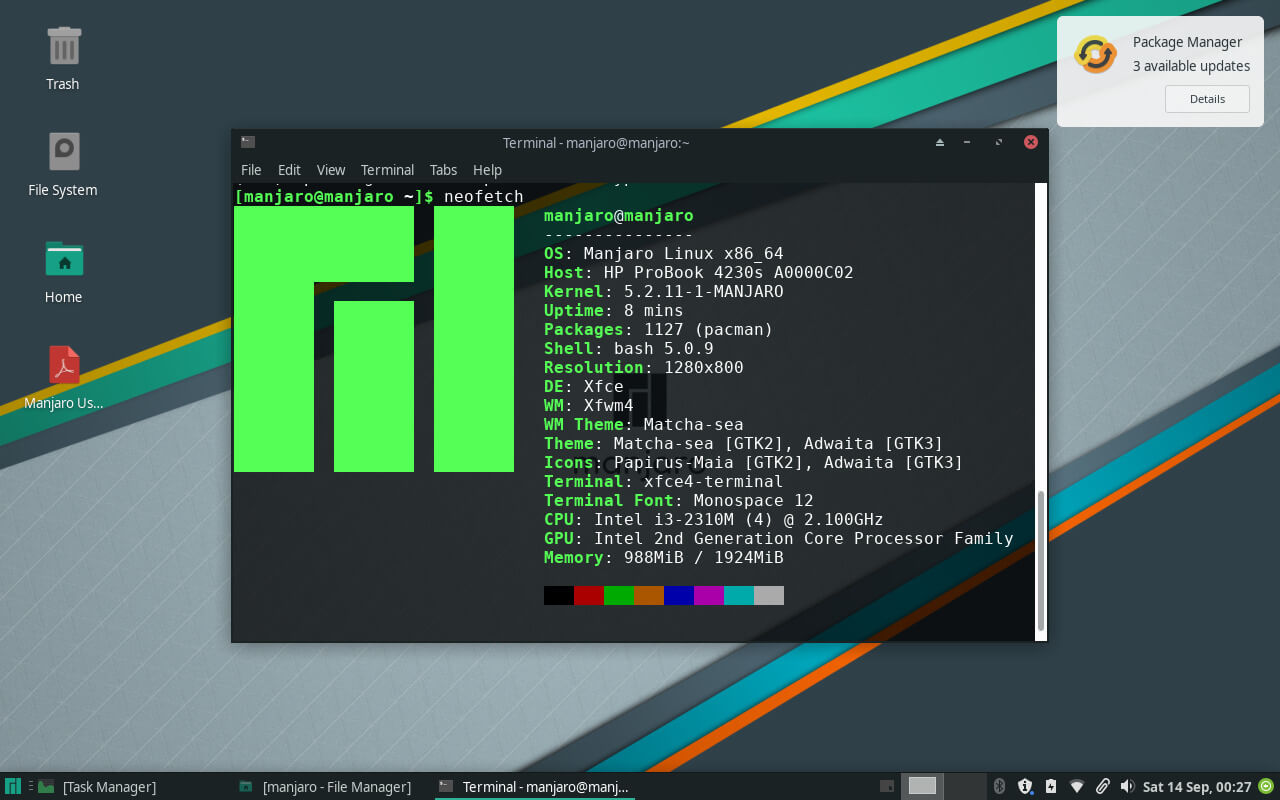
For Manjaro 21.0 installation instructions, read our guide: Installation of Manjaro 21.0 (KDE Edition) Desktop
Kali Linux 2021
Kali Linux is a Debian-based distro developed and maintained specifically for advanced Penetration Testing and Security by one of the world’s leading information security training companies, Offensive Security.
Commonly referred to as the perfect OS for hackers, it is a complete rebuild of BackTrack Linux and completely complies with Debian development standards since its first release on 13th March 2013. Right out of the box it ships with a butt load of tools geared towards Information management, Computer Forensics, Reverse Engineering, and Security research, among other tasks.
The latest version is Kali Linux 2021.2 and its new features include:
- Cloudflare
- Kali Status
- Metapackages
- Helper Scripts
- GNOME Users
- Tool updates: Nmap, Kismet, Hypertio, HostAPd-WPE, Burp Suite
- NetHunter Updates
- ARM update
Kali Linux is available free of charge and you can download it from here: Download Kali Linux 2021.2.
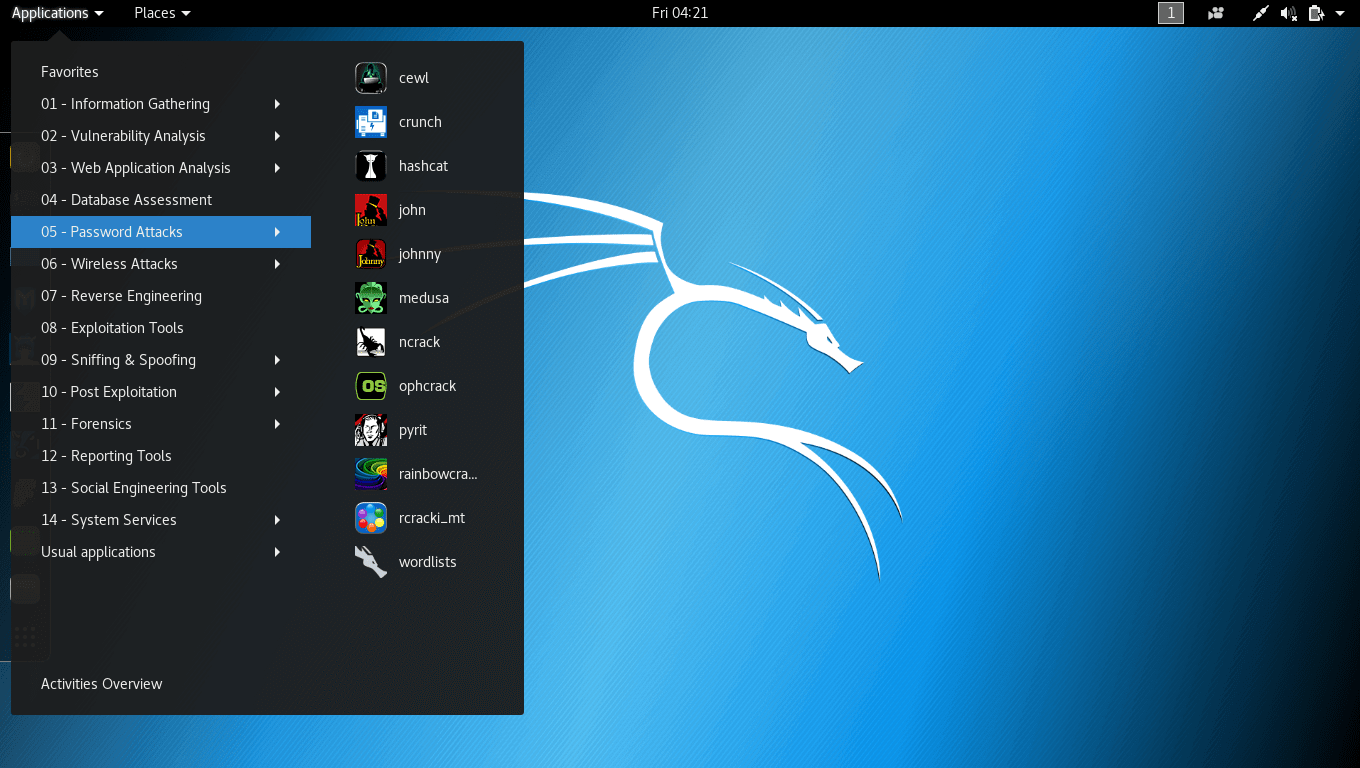
[ You might also like: Kali Linux 2021.1 – Fresh Installation Guide ]
openSUSE
openSUSE is among the most loved distros by system administrators, developers, and even several Linux newbies. Endowed with an activity community known for building virtually everything in-house, openSUSE is unlikely to lack any system requirements that you desire.
It is available in 2 versions, Tumbleweed – a rolling release version which is always updated with the latest improvements, bug fixes, and new features, and Leap – a regular-release version that gets updated periodically.
If you run Tumbleweed then you’re already running the latest version with updated software. The latest version of Leap is 15.3 and you can choose to do a fresh installation of either distro model.
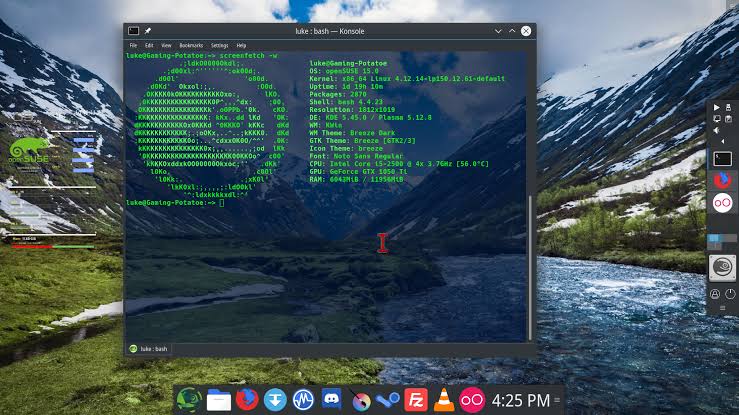
Arch Linux
Arch Linux is a free and open-source distribution for x86 – 64-based architectures. Being a rolling release, it constantly gets updated in the background with fixes and new features without the need for a system reboot. Arch Linux is loved for its stability, reliability, Wiki, AUR, package manager, and welcoming community.
Its latest release 2021.05.01 was made public on April 1, 2021,, and if you already have it installed then you have its latest features and fixes. If you aren’t, you can download the latest version from here: Download Arch Linux 2021.
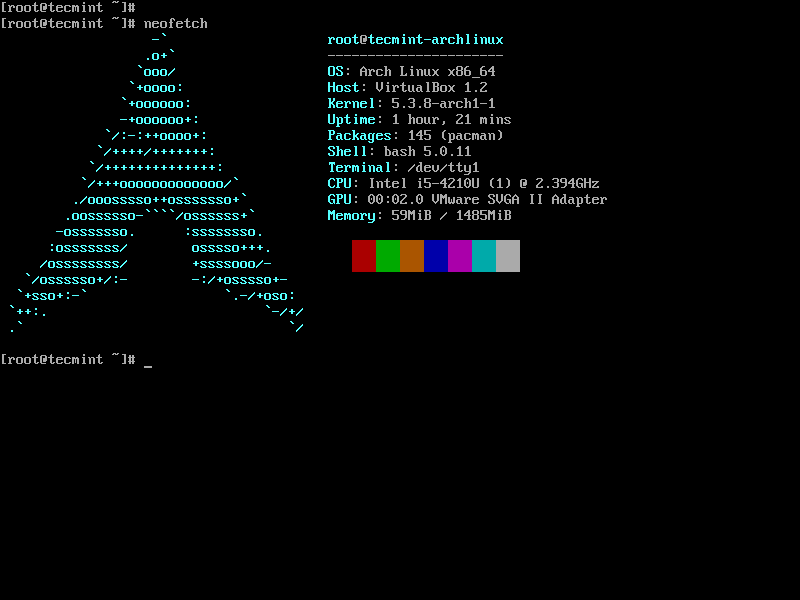
For Arch Linux installation instructions, read our guide Arch Linux Installation and Configuration on UEFI Machines.

Also Alpine in azure? Is that possible?
I had my HDD corrupted because I broke my cardinal rule of leaving my machine switched on and online and was happy with Win 7 as my daily driver after trying to backtrack because Win 10 made its presence is known (auto-update).
I was using a 10 yr old Laptop Acer and found after Win 10 installed itself while I was sleeping, I had 70% corrupt boot sectors my Drive was Fried so to speak but I borrowed a Desktop and burnt a live ISO of Ubuntu found.
I could use the live iso to still access the net but not install it needless to say I bought a new laptop and Played around with Arch fell in love with it and Now I run Garuda an Arch derivative as my daily driver.
I honestly couldn’t be happier. But the best thing with Garuda is everything works straight out of the box no need to configure Bluetooth for peripherals it just runs so efficiently I have never been happier.
Hey Iou – that’s great. I must admit that Garuda didn’t work that well for me out of the box. Had to do a lot of configuration for other devices. Does anyone else have that experience? I wonder what I could be doing wrong.
Hi Phillip,
Just out of curiosity what hardware are you using, I have Garuda running on my “Mongrel” laptop which I build myself using a Toshiba motherboard AMD chip in an Acer case it old now but runs well. And I live time stamp because if an update is buggy and causes issues you’ve got the option of stepping down to the last workable update.
Cheese Lou
Dude, you forgot about MX Linux which has overtaken the BIG boys on DistroWatch to become the #1 Linux distro over there which is a BIG deal. And last month, they came out with a super-reliable KDE spin which is going to set the world on fire due once again to its vaunted RELIABILITY (SystemD free, Debian Stable, FlatPak, MX Tools & amazing updater that never screws up!)
Don’t take my word though. Dedoimedo, the web’s most fussy Linux reviewer, named it Best Linux distro of 2018:
—
“First place: MX Linux MX-17 Horizon
From the very start, MX Linux behaved beautifully. It was elegant, robust, and stable. It comes with many unique features and applications, including its MX Tools combo. It’s one of the few distros that actually save the contents of the live session after the installation, so you don’t need to go about redoing everything. You get blazing performance, excellent battery life, all the fun out of the box, and it’s constantly, continuously improving, with great momentum by the team and the community. The top choice of 2018…
Year after year, MX Linux is getting better and better, climbing in me charts – and if you trust community reviews, then my experience reflects the wider impressions across the Tux sphere.
MX Linux normally uses around 400 to 450MB of RAM at startup – even for the KDE spin which is unheard of. Give it a try! You won’t regret it!
I love this Tecmint site. every article is useful and easy to understand…
Many Thanks
What about Alpine Linux in AWS?